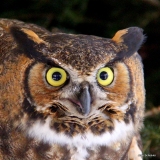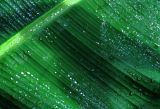- Forum
- General Discussion | Introductions | Off Topic Forum
- Photography General Discussion
- What reasons are there to not use a polarized filter?
What reasons are there to not use a polarized filter?
-
 Topic Author
Topic Author
- Jerry Curtin
- Has the Hang of it
-
- Nikon D70
- Followers: 14
- Posts: 93
-
Points:
362
Post #52933
-

- Baydream
- Moderator
-
- Canoni/60D/70D/5DmkIII
- Followers: 388
- Posts: 11185
-
Points:
7280
Post #52977
Shoot, learn and share. It will make you a better photographer.
fineartamerica.com/profiles/john-g-schickler.html?tab=artwork
-

- Stealthy Ninja
- Moderator
-
- Fuji X stuff and a 1DsIII for some reason
- Followers: 982
- Posts: 16300
-
Points:
6837
Post #53006
You can't afford it perhaps? It's too dark. It's causing vignetting on your lens....
-
 Topic Author
Topic Author
- Jerry Curtin
- Has the Hang of it
-
- Nikon D70
- Followers: 14
- Posts: 93
-
Points:
362
Post #53043
-

- ilh2009ky
- Lone Wolf
-
- Canon T4i and XSi
- Followers: 51
- Posts: 138
-
Points:
768
Post #53067
-
 Topic Author
Topic Author
- Jerry Curtin
- Has the Hang of it
-
- Nikon D70
- Followers: 14
- Posts: 93
-
Points:
362
Post #53271
ilh2009ky wrote: I never use a polarizer when I'm taking photos of people and/or when I'm using my flash. Although I could just turn the polarizer to minimize its effect and so it's not really noticeable, as someone above stated, the extra glass does effect the quality of the photo image a bit. So, I just usually take it off when photographing people.
Will you ever use a polarized filter to reduce glare from someone wearing glasses?
-

- Baydream
- Moderator
-
- Canoni/60D/70D/5DmkIII
- Followers: 388
- Posts: 11185
-
Points:
7280
Post #53273
It was a good question.Jerry Curtin wrote: I see, so my information wasn't 100%. Well it couldn't hurt to ask. Thanks for the info!
Shoot, learn and share. It will make you a better photographer.
fineartamerica.com/profiles/john-g-schickler.html?tab=artwork
-

- Henry Peach
- Apprentice
-
- I currently use a 5DII or Sony Nex-3 most of the time.
- Followers: 50
- Posts: 2925
-
Points:
16
Post #53291
I do often use polarizers on overcast days and when doing outdoor portraits on sunny days. While the polarizing effect on color is not always as dramatic on an overcast day as on a sunny day it can still be significant. I prefer the lush yellow-green foliage looks like polarized vs the shiny, blue-green color it has when un-polarized. It can be harder to see through the viewfinder. I look for the subtle glare on the leaves to disappear.
With the outdoor portraits the 2 stops it eats helps me get down to my flash sync speed at the large apertures I want to use. It's not as effective with the flash, but it still improves colors a bit I think. Also it functions as normal with the parts of the scene lit by natural light. They sell sheets of polarizer film that can be put over flashes and in softboxes so that the polarizing filter will work well with the flash.
-

- ilh2009ky
- Lone Wolf
-
- Canon T4i and XSi
- Followers: 51
- Posts: 138
-
Points:
768
- Forum
- General Discussion | Introductions | Off Topic Forum
- Photography General Discussion
- What reasons are there to not use a polarized filter?
Latest Reviews
The Olympus Pen E-P7 is an affordable micro four thirds mirrorless camera with 4K video capabilities, a 20.3MP sensor, and 121 focus points, making it a solid entry-level camera for beginners.
The Panasonic G9 II is a 25.2-megapixel micro four thirds camera with numerous features that make it punch out of its weight class, like 779 AF points, 5.8K video, and weather sealing.
The Fujifilm XT5 is a 40MP mirrorless camera capable of 6.2K video at 30p. With those specs, it’s an ideal choice for photographers needing a camera to pull double duty for imaging and video.
The Canon EOS R100 is an entry-level mirrorless camera introduced in 2023. But just because it’s an entry-level camera doesn’t mean it’s a bare-bones camera. Find out why in this review!
Forum Top Posters
-
1Scotty 9 posts
-
2TCav 3 posts
-
3Garbo 3 posts
-
4Petroguy 2 posts
-
5Ian Stone 2 posts
-
6Eric A 2 posts
-
7Little Kate 2 posts
-
8Gammill 2 posts
-
9Shadowfixe... 2 posts
-
10Happy Hour 2 posts
Latest Articles
Tree photography is an interesting genre of landscapes that use the size, shape, and texture of trees as the primary element of interest. With these quick tips, you can master the art of photographing trees!
Auto white balance is a camera setting that adjusts the color temperature of your images automatically. It often works well, but you should know a few tips to fix problems it might cause, too.
The Canon EOS 5D Mark III might be more than a decade old, but it still has the chops to be a quality camera for photographers in 2024.
Starting a photography business can be a daunting task. There is a lot to do, and many mistakes can be made. This guide helps you minimize mistakes and maximize your success!
The Canon 6D Mark II might be an older DSLR, but that doesn’t mean it isn’t a good option for 2024. In fact, this budget-friendly camera is a powerhouse for stills and videos.
In this guide to the bokeh effect, you’ll learn what bokeh is and the factors involved in creating it. You’ll also explore some beautiful example images to spark your creativity with bokeh!
Upgrade your kit in 2024 with the best intermediate camera on the market! The question is, what camera fits the bill? We’ve got three top options for you to choose from in this buyer’s guide.
The best photography jobs right now are a mix of tried-and-true gigs like wedding photography and new jobs highlighting AI’s capabilities, travel, and videography.

















